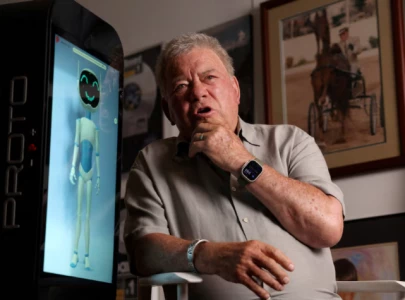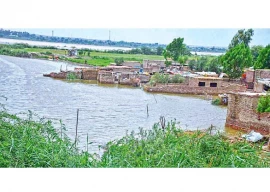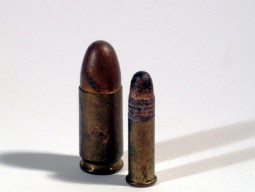
Will Pakistan ever manage to eradicate polio? That is the multi-million dollar question, equivalent to perhaps the amount of money that has been pumped into a string of campaigns over the last two decades. Even with efforts such as the national emergency action plan announced by President Asif Ali Zardari this year and mounting pressure from international donor agencies, Pakistan’s polio cases are still on the rise.
As of August 31 this year, 77 cases were reported, compared to 43 in the country during the same period in 2010. Presently, 14 cases have been reported from Sindh, 33 from Balochistan, 23 from FATA, seven from Khyber-Pakhtunkhwa and one from Gilgit-Baltistan. Punjab has no reported cases thus far. When compared internationally, other countries still fighting polio have shown a marked improvement with Afghanistan reporting 18 cases, Nigeria 26 and one in India as of August 31, 2011.
(Read: Polio eradication: Polio cases decline sharply in 2011)
In what seems to be a desperate attempt to strike out the age-old disease from Pakistan, some donor agencies contributed money through the World Health Organisation (WHO) to increase the daily honorarium for health workers responsible for administering the vaccine.
The daily remuneration increase from Rs150 to Rs250 along with a petrol allowance and transport costs is a welcome one. But will it be enough? Or is the government overlooking other key issues that need to be addressed and resolved?
How the increase will help
According to a senior official at the WHO, the increase was made with the hope to recruit and retain “good quality workers”. The polio initiative was witnessing a 20% staff turnover from one campaign to the next and seeing “new volunteer faces each time” was very discouraging, the official added.
The WHO wants to ensure that resources are not squandered by training new recruits for each campaign. It hopes to improve the quality of service in line with cultural norms and other requirements for community integration. “Training new recruits and familiarising them with the process as well as the area and locality for each round was time consuming. This [increase] will boost morale and we think it is only fair to offer these benefits. The amount now is close to what is offered in Afghanistan where health workers face more difficult circumstances. Workers in India are offered less,” the official said, requesting anonymity.
What is being overlooked
However, while new financial measures will go a long way in improving the government’s ammunition against the disease, it will not be enough to eradicate polio, according to the project director for the extended programme on immunisation (EPI) in Sindh, Mazhar Ali Khamisani.
“You can put in all the money you want, but people need to own the programme,” he told The Express Tribune. “There is no ownership and therefore no real accountability.”
According to Khamisani, the polio coverage in Sindh is “nothing below 98%” and no cases have been reported in the province since June 10. On the other hand, the far-flung and tumultuous terrain of Balochistan makes accessibility to some children very difficult. This lack of access and an unstable law and order situation are responsible for the high number of cases in the province. Experts strongly propose customised solutions for every area and each ethnicity. The chair of paediatrics and child health at Aga Khan University Hospital (AKUH), Dr Anita Zaidi, says that the message is not one of despondency but there are many issues that are being overlooked.
“If a complete solution is desired then we must talk openly on all aspects.” One such aspect is the rising number of cases in children of Pakhtun ethnicity. In fact, according to Zaidi, Pakhtun children are five times more likely to be infected by polio than children from other ethnicities in the country.
Again, there are a number of reasons for this. “Mainly because they are less likely to be vaccinated,” Zaidi immediately explains. “Especially in Karachi where I am sure there is a great deal of ethnic mistrust; [if] the person [administering the vaccine] is not from their [Pakhtun] community [there] may [be] a number of refusals.” Similarly, health workers may fear entering insular Pakhtun areas due to safety and security concerns.
There is debate on this aspect, however. A senior official in Unicef, who did not want to be named, disagreed with Zaidi’s reasoning. “Health workers are usually taken from the same locality and community so that is not the reason,” he said. Instead, the problem is mobile populations. “For many reasons, many people often migrate within the country and therefore their children are often missed out in polio campaigns.” Indeed, according to Zaidi, around 70% of children already diagnosed with polio were found to be either inadequately or not at all immunised.
Previously, a huge obstruction in the campaign’s success was the recruitment of very young, seven and eight year olds, as workers to administer the vaccine. This, Khamisani says, will no longer be an issue as only people 18 years and older will be hired.
In Sindh, each team comprises two members, one government representative and one private. But in Karachi there are barely any government representatives so both members are from the private sector. This ends up doubling expenditure and the per team cost rises to Rs500.
“Rather than having 20 campaigns in a year, the government should look into holding two or three and pay the workers really well,” AKUH’s Zaidi recommends. “About $10 a day should be sufficient if you want to hire skilled labour.”
Another challenge to the entire effort is for the different agencies and government units to coordinate. Right now, the WHO, Unicef, Rotary and other NGOs are working on polio in Sindh as is the city government and provincial government.
Published in The Express Tribune, September 8th, 2011.

















COMMENTS
Comments are moderated and generally will be posted if they are on-topic and not abusive.
For more information, please see our Comments FAQ